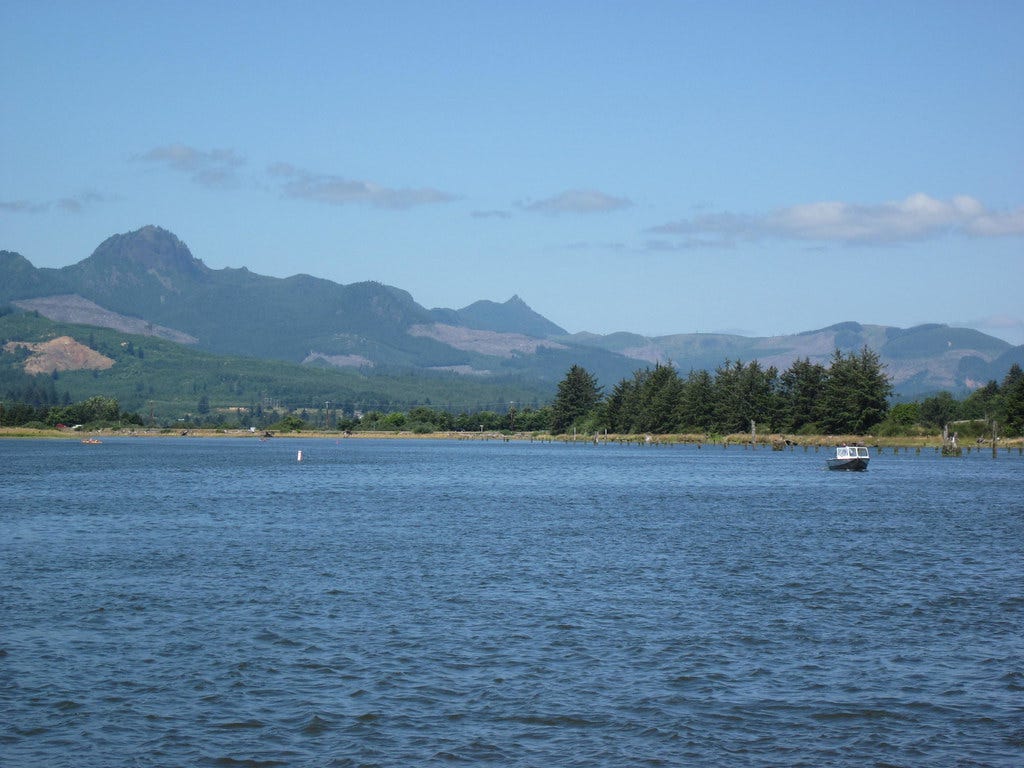The mid-Way (3/10/21)
A new podcast, a novel policy solution, and a call for continued collaboration.

Editor’s Note: Learning from mistakes
What explains how some countries have been able to more effectively respond to the pandemic than others? It’s not necessarily democracy nor geography nor even the caliber of the politicians (at least not the ones currently in office). Instead, a lot of it comes down to whether that country’s prior officials learned from previous encounters with pandemics.
After addressing SARS and MERS, several East Asian countries revamped their governing institutions and laws to be ready for the next pandemic. Taiwan and South Korea, for example, created unique public/private partnerships and processes to expedite testing and diagnostics.
In particular, Taiwan took several additional steps: creating a national health command center to coordinate inter-ministry efforts for containment, upgrading their labs to allow for early detection, and initiating comprehensive public health education initiatives. These adaptive and responsive measures have saved lives in the pandemic.
The countries that comparatively failed to learn from prior encounters have failed their publics. Though Japan’s COVID rates are lower than many countries, their performance ranks poorly compared to their neighboring nations. Why? According to Brian An and Shui-Yun Tang, Japan did not “buil[d] relevant health infrastucture” depsite having suffered with H1N1.
What does this mean for Oregon? It means that even though the “aftertimes” are on the horizon, there’s another “__________ times” lurking around the corner. It also means that future Oregonians are counting on current elected officials to make the necessary adjustments now to ensure that our system is more responsive and well-resourced down the road.
So, what lessons do we need to be learning? And, are we adequately keeping future Oregonians in mind?
To a better Oregon,
Kevin
Exciting new partnerships!
Ben Bowman (a progressive member of the Tigard-Tualatin school board member) and Alex Titus (a Trump Administration alum) just launched “The Oregon Bridge” podcast. The podcast provides in-depth interviews with folks shaping Oregon politics.
We’ll be featuring their first few episodes, including Rep. Wlnsvey Campos (the youngest woman ever elected to the Oregon legislature—and one of the body's most progressive members) and Alek Skarlatos (former GOP congressional candidate and celebrity). You can listen to the podcast on Apple, Spotify, or anywhere you get your podcasts—or you can watch on YouTube. We highly recommend you listen and subscribe!
The Oregon Values and Beliefs Center and The Oregon Way are partnering up to provide you with a snapshot of the OVBC’s work to provide polling information that’s nonpartisan, inclusive, and representative. Check out their second contribution below.
Help us connect Oregonians
Do you have three friends? Share this blog with them.
Send potential contributors and feedback to Kevin (kfraz@berkeley.edu)
Do you have a friend on the coast? Tell them Kevin is intrigued to add their two cents to The Oregon Way!
Like what we’re doing? Feel free to change your subscription to a paid account, or not.
To ponder: “A Middle of the Road” Approach to Economics
To read:
For a novel approach to criminal justice reform, read Steve Novick’s latest submission:
In the national debate about mass incarceration, a major factor is generally overlooked: prosecutors. They are largely responsible for determining the use of prison sentences and don’t have to live within a budget for those sentences. If a county District Attorney (DA) sends someone to prison – usually as the result of a plea bargain – the state has to pay the cost of imprisonment. As far as the DA is concerned, prison is a free resource.
Visit and stay. Please. An update on Tom McCall’s quip from John Tapogna:
This is not 1971. When McCall issued his quip, he likely didn’t have jingoism, polarization, and automation top of mind; leaders today don’t have that luxury.
The bottom line: a state that has successfully executed McCall’s natural capital strategy—preserving the pristine wilderness and access to the outdoors that keep so many of us here and draw people from all over—needs to add a similarly coherent human capital strategy—attracting the best and brightest, as well as educating and retraining those already here—going forward. That starts with turning McCall’s unofficial motto on its head: visit and stay, please.
Brian Duty penned his first post on collaboration in the health care industry during the pandemic:
Indeed, we should be proud that Oregon's healthcare systems were the first in the country to create a collaborative IT system to combat the Covid-19 virus. But we should demand more. The same tools could be used to coordinate care for Oregonians afflicted with other life-threatening conditions. Why should a patient suffering a stroke be transported hundreds of miles to an affiliated hospital, when a neuro-interventional radiology unit is available across town?
What does the next governor need to know about rural Oregon? Ginger Savage shares her perspective.
Dear Candidates,
Hi! I am Ginger Savage, a lifelong Oregonian, born and raised in Central Oregon. For the last 31 years, I have lived in Baker City in rural Eastern Oregon. In this great, small town, I have raised a family, worked hard, and dreamt of a better Oregon. I thought I would share some ideas and details about my views of rural Oregon. Though it may sound too obvious to mention, it’s too important not to: the next governor must prioritize connecting with Oregonians from every corner of the state.
To look forward to:
Adam Davis on how to derive meaning from loss.
Melissa Cribbin penning her first contribution.
Sen. Jeff Golden on the River Democracy Act.
Andrew Kalloch discussing “sacrifice.”
To answer:
Tweet at @the_oregon_way to win & tell us who said this:
The first lesson I have learned is that of civility - of being able to disagree without being disagreeable. To learn to engage in a spirited debate about a controversial issue and to walk away friends. To learn to separate people from politics and personalities from policies.




